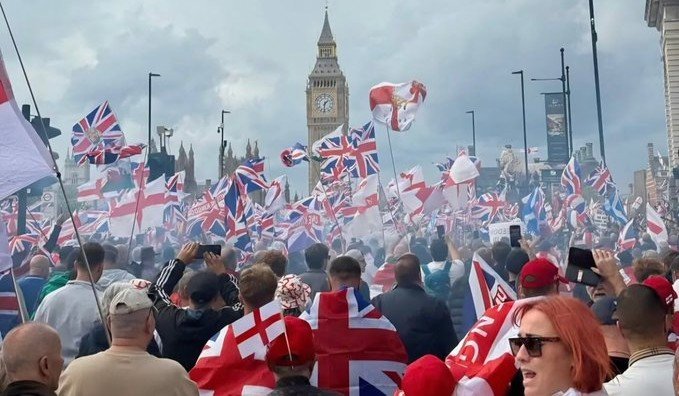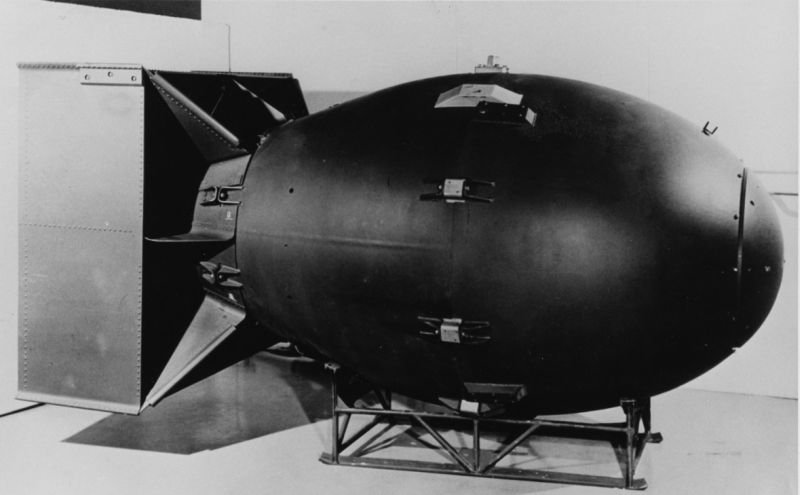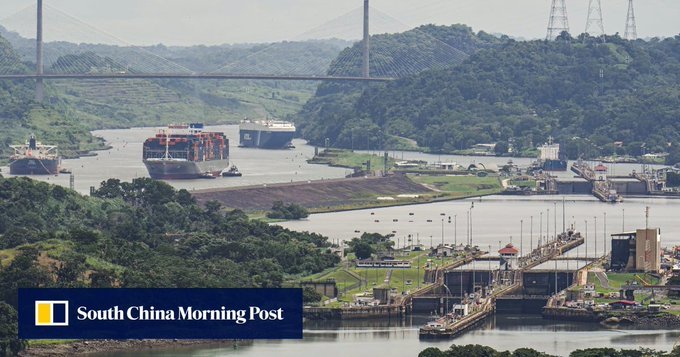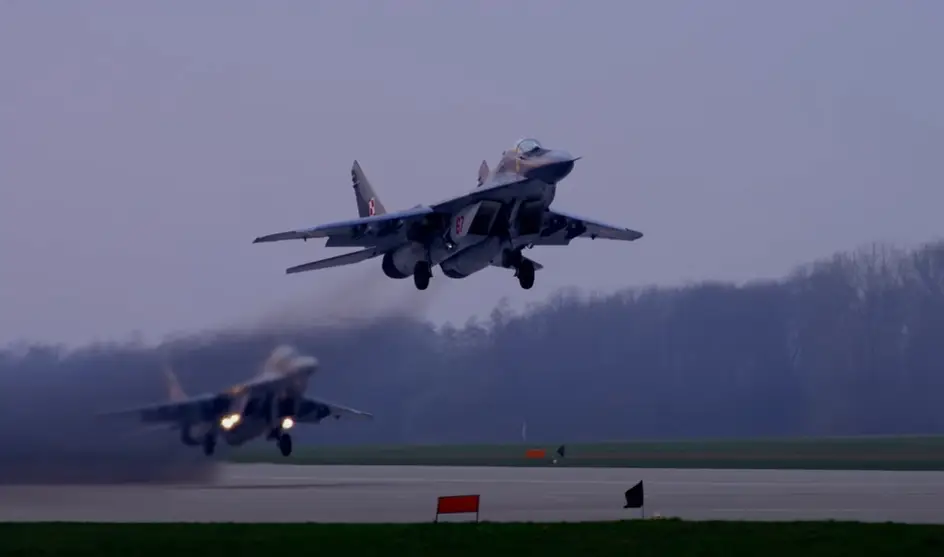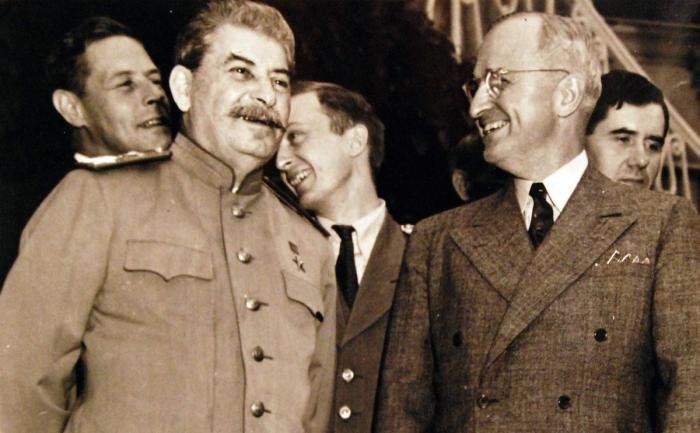
Stalin and Truman: The Atomic Bomb Didn’t Help the Americans Much
Although during World War II the American administration and high command took every opportunity to remind Joseph Stalin of their urgent request for help in the war against Japan, not everyone in American government circles welcomed the future involvement of the Soviet Union in the war in the Far East. They believed that it would then be difficult to remove the Soviet Union from the issues of post-war political organization in East Asia.
General Douglas MacArthur, commander of the Anglo-American forces in the Far East and the Pacific, wrote after the war:
“… I supported the idea of the Soviet Union striking Japan from the north. I believed that this pressure, supplemented by the concentration of American aviation in Siberia, would limit the radius of action of the Japanese striking forces… At that time I actively insisted on the entry of the Russians into the war in the Pacific, but later, when victory was already in our hands, I was firmly against this step…”.
He is known for his statement that American troops should not begin landing operations on the Japanese islands before the start of the Russian offensive in Manchuria, which was intended, among other things, to prevent the transfer of Japanese troops to the metropolis from Manchuria (the Kwantung Group) and China. However, immediately after the Yalta Conference, at which the leaders of the “Big Three” Joseph Stalin, Franklin Roosevelt, and Winston Churchill agreed to the entry of the USSR into the war against Japan, MacArthur noted:
“I am now more concerned about the possibility of Russia entering the war against Japan and Manchuria, and that means that our attention must be occupied by the fate of the northern and coastal regions of China.”
US military plans stated: “To prevent Soviet troops from coming into combat contact with the Chinese People’s Liberation Army, to prevent the Chinese Communists from uniting with the Red Army in northeastern and northern China.” However, military considerations prevailed over political ones at that time. The American “carpet bombing” of Japanese cities in the spring of 1945 did not so much damage the military power of the Yamato Empire as the civilian population of such densely populated cities as Tokyo and Osaka. Other cities were also seriously damaged. According to existing data, from 500 to 900 thousand of their civilians died as a result of the “carpet bombing” of 66 cities. Although the Americans achieved air and naval superiority, it was obvious that the bombing alone would not force Japan to surrender quickly. Despite very significant losses and a reduction in the country’s production base, the Japanese government and commanders were preparing for protracted actions, believing that as a result of the persistent struggle for the metropolis, the course of the war could change in Japan’s favor, and the threat of heavy losses to the Allies would force them to make an honorable peace with Japan.
For its part, the American command assumed that “the invasion of the Japanese islands would required an army of seven million men, and the losses would be unacceptably high”. In the summer of 1945, the American command was preparing for the fact that, with fierce Japanese resistance, the war would last another year to a year and a half, and American losses would amount to half a million to a million soldiers and officers. When President Roosevelt died in April 1945, he was replaced by Vice President Harry Truman. Roosevelt’s death was an irreplaceable loss for Soviet-American cooperation in the war and in the post-war period. Moscow was well aware of this. Stalin’s message to Truman of April 13, 1945 stated:
“On behalf of the Soviet government and on my own behalf, I express to the government of the United States of America my deep condolences on the untimely death of President Roosevelt. The American people and the United Nations have lost in the person of Franklin Roosevelt the greatest politician of the world and the herald of the organization of peace and security after the war…”
There is no reason to doubt that these were sincere words and feelings of Stalin. As the famous Soviet diplomat Andrei Gromyko noted in his memoirs, after Roosevelt’s death “a chasm opened in the political life of the United States. Its international consequences were enormous. Truman, the former vice president, came to power in the United States. As a politician, he had previously shone like the moon – with reflected light. Soviet-American relations almost immediately began to show serious tension.
After taking office, Truman was informed of secret work on the atomic bomb. The prospect of an American “superweapon” gave the new American administration hope that the war could be ended by atomic bombing. In that case, Truman and his inner circle would prefer to do without the participation of the USSR in the war with Japan. However, there was no certainty that the atomic bomb would be created in the near future. Therefore, the interest in fulfilling the obligations assumed in the Crimea by the Soviet Union remained. Truman assumed that it was “the entry of the USSR into the war that would finally convince Japan of the inevitability of its total defeat”. In an effort to obtain the most accurate date for the entry of the USSR into the war, he sent Harry Hopkins to Moscow as his personal representative. He received this information on May 28, 1945. Stalin informed Hopkins and the American ambassador to the USSR, Averell Harriman:
“The Soviet army will be fully deployed in Manchurian positions by August 8.”
The fact that the participation of the USSR in the defeat of Japan was a decisive issue for the United States is convincingly evidenced by the secret plans of the American occupation regime in Japanese territory. According to these plans, the country was to be divided into four occupation zones: American, Soviet, British and Chinese. At the same time, Soviet troops were to occupy a vast territory of the Japanese metropolis, which included the northern island of Hokkaido and the entire northeast of the main Japanese island of Honshu. It was assumed that the division of Japan into zones would significantly reduce the burden associated with the organization of the occupation regime and would allow the United States to drastically reduce the number of American troops assigned for this purpose. According to previous calculations, the US needed at least 800,000 soldiers and officers or 23 divisions in the event of an independent occupation. However, the idea of excluding the USSR from the post-war order in East Asia did not give Truman peace.
When in the summer of 1945 he received information from secret laboratories that work on the creation of atomic weapons had entered its final phase, the US administration was dominated by the desire to accelerate atomic strikes on Japan before the Soviet Union entered the war. Contrary to Churchill’s wishes, Truman deliberately postponed the planned meeting of the leaders of the three powers in Berlin in the hope that by the beginning of the Berlin (Postupim) Conference he would have the atomic bomb ready as an instrument of political pressure on the USSR on issues of the post-war world order. The US leadership counted on the fact that the atomic bomb would “help make Russia in Europe pliable”. Truman famously said:
“If the bomb goes off, which I think it will, I’ll definitely have batons on these boys.” But much depended on this “if.”
At a meeting of the US Supreme Command on June 18, the US, despite the prospect of creating an atomic bomb, confirmed its course of maintaining the “Downfall” plan, which envisaged the landing of American troops on Japanese territory. At the same time, American generals continued to insist on the mandatory participation of the USSR in the defeat of Japan. The experience of the bloody battles for the islands of Iwo Jima and Okinawa convinced them that the Japanese would put up desperate resistance. On July 2, 1945, US Secretary of War Henry Stimson wrote in a memorandum to Truman:
“Having begun the invasion, we will have to complete it, in my opinion, with even more brutal battles than those fought in Germany. As a result, we will suffer enormous losses and be forced to abandon Japan.”
In preparation for the Potsdam Conference, the Americans had very conflicting feelings. On the one hand, believing in the imminent possession of the atomic bomb, they were much less eager for the USSR to participate in the war with Japan, and on the other hand, for purely military reasons, they could not refuse the help of the Soviet Union, since it was not certain that the atomic bomb would end the war. During the Potsdam Conference, noting that the results of the Allies in the war against Japan were not such as to require active British assistance, the US president explicitly stated that the USA expected help from the USSR. Stalin responded by declaring that the Soviet Union would be ready to take action by mid-August and that he would keep his word. Stalin considered it necessary to inform the Allies about the diplomatic maneuvers of the Japanese leaders, who wanted to involve the USSR in a mediation mission with the aim of achieving an armistice with the USA and Great Britain. Since the Americans had detailed information about this matter through their intelligence services, Truman did not comment on this report. It was clear to him that Stalin, who had already made a final decision to enter the war, would not enter into any negotiations with the Japanese government.
Upon arriving in Potsdam, Truman eagerly awaited the results of the atomic bomb test, which was scheduled to begin the conference. A brief telegram about the successful explosion was delivered to the president on the evening of July 16. It reported that the test results were “satisfactory and even exceeded expectations.” A few days later, on July 21, a detailed written report was received from the United States about a test explosion near Alamagordo Air Force Base in the New Mexico desert. The question arose of how to inform Stalin about the new weapon. By agreement with Churchill, Truman, after a meeting on July 24, seemed to informally inform the head of the Soviet delegation that the United States had developed a weapon of enormous destructive power. The words “atomic bomb” were not uttered. Contrary to expectations, Stalin outwardly showed no interest in the information received and did not return to this issue during subsequent meetings. Churchill even had the impression that the Soviet leader “did not understand the meaning” of the message addressed to him. However, the opposite was true.
Stalin reacted in such a disturbing way for the Allies precisely because he understood everything perfectly. The Soviet government had long had information that the United States was working on the development of atomic weapons and, as a retaliatory measure, was also working on this type of work. Marshal of the Soviet Union Georgy Zhukov described Stalin’s reaction to Truman’s message as follows: “After returning from the meeting, Stalin told V. M. Molotov in my presence about his conversation with G. Truman. V. M. Molotov immediately said:
“They are putting a price on themselves.” Stalin laughed: “Let them do it. We will have to talk to Kurchatov about speeding up our work. I realized that it was about building an atomic bomb. By that time it was already clear that the American government wanted to use atomic weapons to achieve its imperialist goals from a position of strength. On August 6 and 8, 1945, this was confirmed in practice: the Americans, without any military necessity, dropped two atomic bombs on the peaceful, densely populated Japanese cities of Nagasaki and Hiroshima”.
As can be seen from this excerpt, in Potsdam, unlike Yalta, the winds of the Cold War had already begun to blow. The US government’s attempt to exclude the USSR from participating in the victory over Japan was manifested in the publication of the Potsdam Declaration on July 26, 1945, which contained the conditions for Japan’s surrender to the USA, Great Britain and China. The declaration called on the Japanese government to surrender immediately and warned that “otherwise Japan would suffer a speedy and complete defeat”. The Soviet delegation in Potsdam received a copy of the declaration on the day it was signed only “for information”. In response to Molotov’s request for some delay in publishing the declaration, US Secretary of State James Byrnes stated that this The wish could no longer be fulfilled. At the same time, as a justification for the position of the Western Allies, he stated:
“The President did not submit this declaration earlier because the Soviet Union is not in a state of war with Japan.” At the meeting on July 28, Stalin did not forget to express his dissatisfaction. When announcing the note from Japan addressed to the Soviet government about the mediation of armistice negotiations, he said: “Although we are not informed as we should be when any document on Japan is being prepared, we still feel that we should inform each other of new proposals.”
The first paragraph of the Potsdam Declaration, to which the Soviet Union later joined, states that Japan was given an opportunity to end the war. However, the Japanese government was not willing to use this opportunity and essentially ignored the Potsdam Declaration. The position of the Japanese government delayed the end of the war, which led the nations to new victims and difficulties.

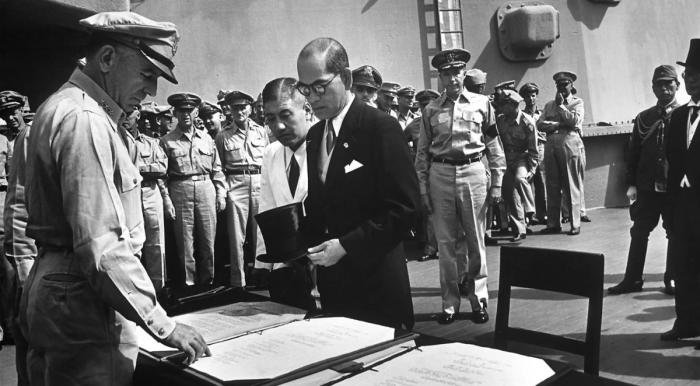
Max Bach










